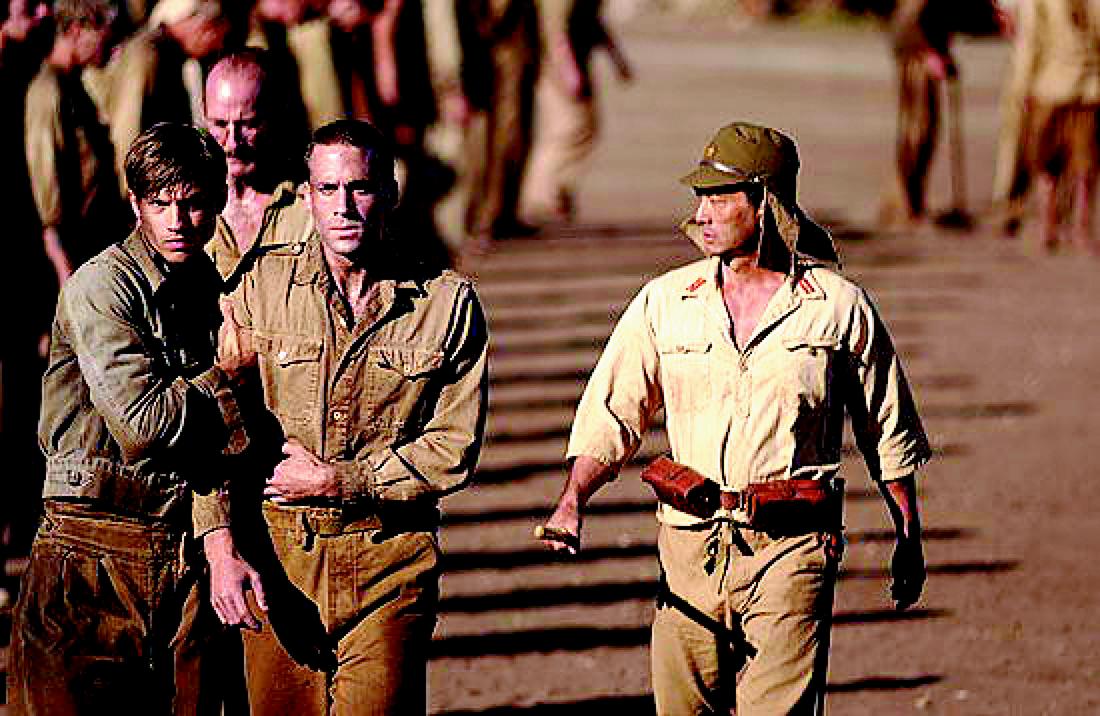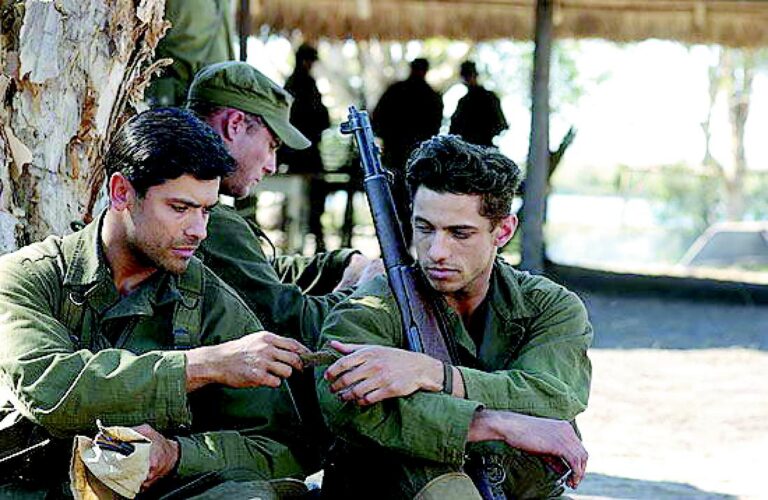The Great Raid returns us to those thrilling days of yesteryear for a bit of nostalgic uniformed hero worship. Based on a true story, The Great Raid tells of a little-known assault by U.S. Army Rangers on a Japanese prison camp in the Philippines. Although not as popular as the “glamor” campaigns of Iwo Jima and the like, the raid on Cabanatuan was actually the most successful of the war, ultimately liberating nearly 500 American POWs.
The film proceeds rather matter-of-factly, introducing us to assorted important figures such as the flamboyant Lt. Colonel Mucci (Benjamin Bratt, who I still regard as “the good version of Lou Diamond Phillips”) and his go-to man, Captain Prince (James Franco, a bit bland here stripped of his trademark sulky glower). The soft-spoken Prince is put in charge of organizing the raid, gathering the men and, ultimately, beating the odds. The plan is to utilize a small squad of Rangers, have local Filipino resistance fighters lead them to the prison and perform a daring lightning quick strike.
The buildup to the climactic raid is delivered in shades of olive drab, like a monotone middle school history lesson–it's informative, but not all that exciting. Director John Dahl (best known for crime films like Kill Me Again, Red Rock West and The Last Seduction) seems a bit out of his element here. He's clearly aiming for an old-fashioned wartime epic along the lines of Guns of Navarone or Bridge on the River Kwai. Dahl certainly gets points for avoiding the rapid-fire, over-the-top brutality of today's war movies (Blackhawk Down, We Were Soldiers), but The Great Raid is no Guns of Navarone. Hell, it's no Force 10 from Navarone.
That isn't to say that The Great Raid soft-pedals its subject matter. It does not. The film, in fact, splits its time between the soldiers planning the raid and the poor, starving POWs who have been stuck behind the barbed wire for nearly three years. The film tries to build some tension by showing us the cruel lengths the Japanese army is willing to go to. Soldiers, for example, are ordered to burn alive any prisoners if the camp is in danger of falling into enemy hands. Historically accurate or not, it's probably safe to say this film isn't winning any audience choice awards at the Tokyo International Film Festival.
The horrifying brutality of the Japanese prison camp is seen mostly through the eyes of stalwart Major Gibson (Joseph Fiennes), who tries to keep hope alive despite his own losing battle with malaria. There are moments of great joy and great fear within the prison camp–which renders much of the procedural scenes of marching and mapmaking going on outside the camp a little dull.
The film's narrative is further diluted by folding in a third plotline involving an American nurse (Connie Nielsen) working with the Filipino underground to smuggle medicine into the Cabanatuan prison camp. Nielsen actually gets some of the film's best drama, but her story (although also based on a true story) comes across as incidental. A chaste romance between Nielsen's noble nurse and Fiennes' stoic soldier feels fabricated simply to keep female butts glued to theater seats.
The film's long-promised climax, the actual raid on Cabanatuan, is fortunately the film's strongest point. The real-time raid is chaotic, exciting, explosively shot and marred only by its rather predetermined outcome. If Dahl and his screenwriters had only found a way to stretch this excitement throughout the rest of the film's lengthy run-time, The Great Raid might have earned itself a lasting place alongside other classic combat films. As it stands, The Great Raid is only a partially successful operation. The B-list cast lacks the necessary charisma to push the characters beyond the normal wartime stereotypes. The direction comes alive in moments of action, but malingers in moments of exposition. Still, VFW members and ROTC recruits seeking heroism, honor, nobility, sacrifice and a lot of exploding tanks are more than likely to walk out of the theater humming “As the Caissons Go Rolling Along” and feeling good about themselves.




